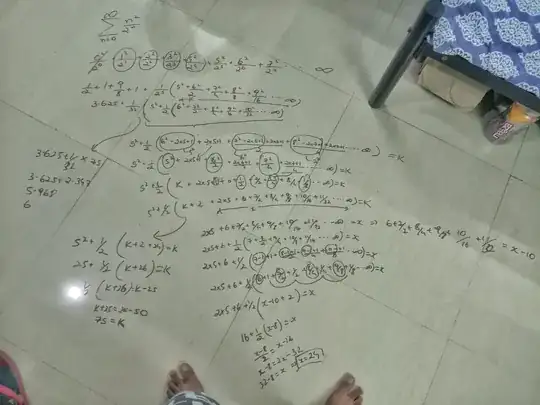Some parts of the text might not be clear so please ask about them in the comments. Sorry for the uploaded image as it was taking a long time for me to write the whole proof.

Some parts of the text might not be clear so please ask about them in the comments. Sorry for the uploaded image as it was taking a long time for me to write the whole proof.

The usual short proof is$$\begin{align}\sum_{n\ge0}x^n&=\frac{1}{1-x}\\\implies\sum_{n\ge0}n^2x^n&=x\frac{d}{dx}\left(x\frac{d}{dx}\sum_{n\ge0}x^n\right)\\&=x\frac{d}{dx}\left(\frac{1}{(1-x)^2}-\frac{1}{1-x}\right)\\&=\frac{x(1+x)}{(1-x)^3}\end{align}$$with $x=\tfrac12$. It looks like your approach is more similar to a different one that can also be made reasonably concise:$$\sum_{n\ge0}n^2x^n=\sum_{n\ge0}\left(2\binom{n}{2}+n\right)x^n=\left(x^2\frac{d^2}{dx^2}+x\frac{d}{dx}\right)\sum_{n\ge0}x^n=\frac{2x^2}{(1-x)^3}+\frac{x}{(1-x)^2}.$$